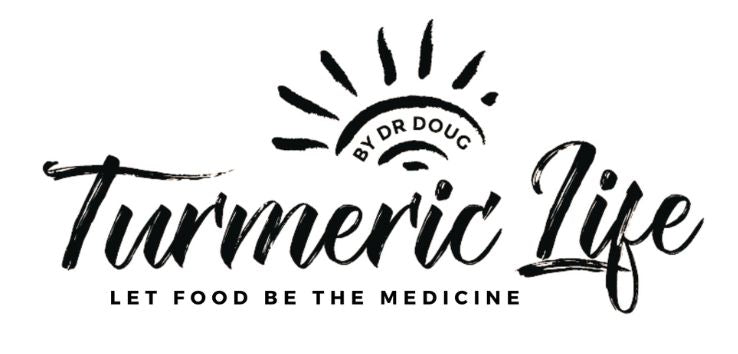
Health Benefits of Dates
The Health Benefits of Dates
An excessive amount of sugar is widely acknowledged as an unhealthy addition to any diet. The dates contained in Turmeric Life Performance & Power Bars are naturally relatively high in sugar, however, their fibre, polyphenols, vitamins and minerals make them a nutritious food regardless.
A research publication in Journal of Agricultural Food Chemistry in 2009 concluded that date consumption (and mainly the Hallawi variety that Turmeric Life uses), despite their high sugar content, demonstrated beneficial effects on healthy subjects (Rock W1). Serum triacylglycerol and oxidative stress are not increased, and so serum glucose and lipid/lipoprotein patterns are stable (Taleb H1). Thus, dates can be considered to be an antiatherogenic nutrient, which means it stops the deposition of atherosclerosis, lipids and calcium in the arterial lumen, i.e. the feared cholesterol deposits (Al-Farsi MA1).
Dates are an excellent source of potassium
Dates are an excellent source of potassium which is an important component of cell and body fluids helping regulate heart rate and blood pressure. Dates are also rich in minerals such as selenium, calcium, manganese, copper, and magnesium which also help to regulate blood pressure. Thus, they offer protection against stroke and coronary heart diseases (Vayalil).
The protein in dates contains 23 types of amino acids, some of which are not present in the most popular fruits such as oranges, apples and bananas.
Dates contain health-promoting flavonoid polyphenolic antioxidants known as tannins. Tannins are known to possess anti-infective, anti-inflammatory, and anti-hemorrhagic factors, reducing risk of colitis and helping to prevent colon cancer (Yasin BR1). Also, they contain antioxidant flavonoids such as ß-carotene, lutein, and zea-xanthin and other polyphenols, anthocyanins, sterols and carotenoids. These antioxidants have the ability to protect body structures from the harmful effects of free radicals, and therefore, these natural bioactive compounds contribute to the health-enhancing properties of the Turmeric Life Performance & Power Bars (Al-Shahib W1).
Dates have been cultivated in the Middle East and Northern Africa for thousands of years where they remain a large part of the Middle Eastern diet. With a history akin to the use of turmeric, historically people have recognised the benefits of dates, and now with modern science, we are beginning to understand why they are excellent for overall health.
Bibliography
Al-Farsi MA1, L. C. (2008 Nov). Nutritional and functional properties of dates: a review. Crit Rev Food Sci Nutr. , 48(10):877-87.
Al-Shahib W1, M. R. (2003 Jul). The fruit of the date palm: its possible use as the best food for the future? Int J Food Sci Nutr. , 54(4):247-59.
Rock W1, R. M.-N. (2009 Sep 9). Effects of date (Phoenix dactylifera L., Medjool or Hallawi Variety) consumption by healthy subjects on serum glucose and lipid levels and on serum oxidative status: a pilot study. J Agric Food Chem, 57(17):8010-7.
Taleb H1, M. S. (2016 Dec 24). Chemical characterisation and the anti-inflammatory, anti-angiogenic and antibacterial properties of date fruit (Phoenix dactylifera L.). J Ethnopharmacol, 194:457-468.
Vayalil. (2012). Date fruits (Phoenix dactylifera Linn): an emerging medincial food. Crit Rev Food Sci Nutr, 52(3):249-71.
Yasin BR1, E.-F. H. (2015 Dec). Date (Phoenix dactylifera) Polyphenolics and Other Bioactive Compounds: A Traditional Islamic Remedy's Potential in Prevention of Cell Damage, Cancer Therapeutics and Beyond. Int J Mol Sci., 16(12):30075-90.
Crit Rev Food Sci Nutr. 2012;52(3):249-71. doi: 10.1080/10408398.2010.499824.
Date fruits (Phoenix dactylifera Linn): an emerging medicinal food.
Vayalil PK1.
Int J Mol Sci. 2015 Dec 17;16(12):30075-90. doi: 10.3390/ijms161226210.
Date (Phoenix dactylifera) Polyphenolics and Other Bioactive Compounds: A Traditional Islamic Remedy's Potential in Prevention of Cell Damage, Cancer Therapeutics and Beyond.
Yasin BR1, El-Fawal HA2, Mousa SA3.
Int J Food Sci Nutr. 2003 Jul;54(4):247-59.
The fruit of the date palm: its possible use as the best food for the future?
Al-Shahib W1, Marshall RJ.
Crit Rev Food Sci Nutr. 2008 Nov;48(10):877-87. doi: 10.1080/10408390701724264.
Nutritional and functional properties of dates: a review.
Al-Farsi MA1, Lee CY.
J Ethnopharmacol. 2016 Dec 24;194:457-468. doi: 10.1016/j.jep.2016.10.032. Epub 2016 Oct 10.
Chemical characterisation and the anti-inflammatory, anti-angiogenic and antibacterial properties of date fruit (Phoenix dactylifera L.).
Taleb H1, Maddocks SE2, Morris RK3, Kanekanian AD1.
